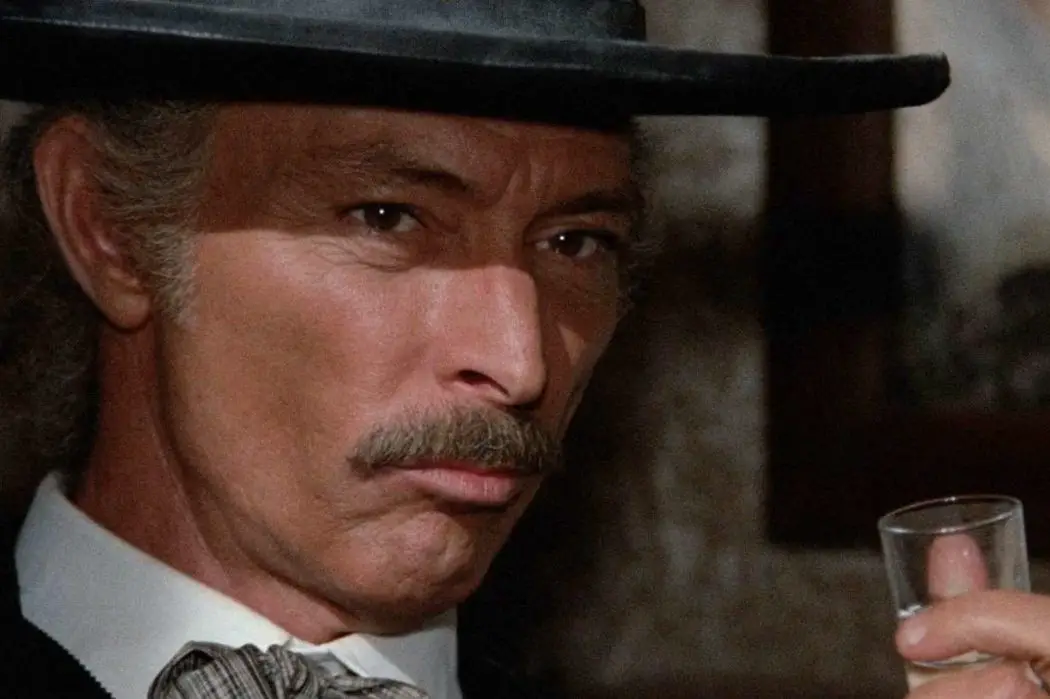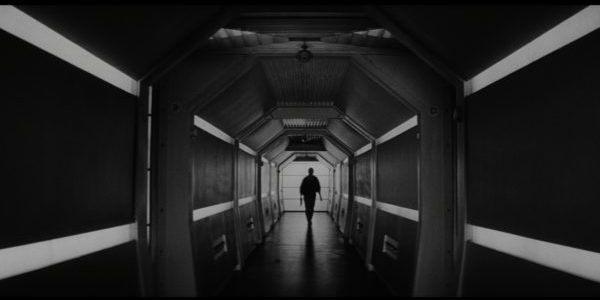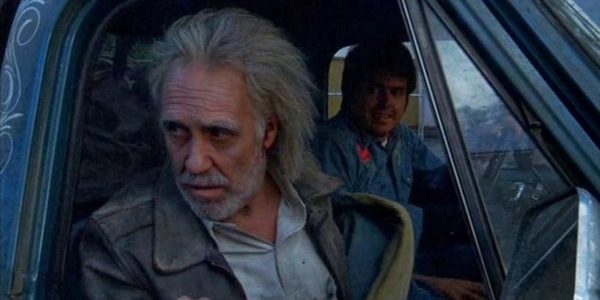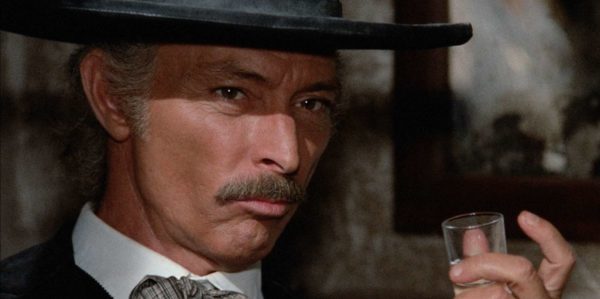Video Dispatches: IKARIE XB 1, MELVIN AND HOWARD & THE GRAND DUEL

Midwesterner, movie lover, cinnamon enthusiast.
Video Dispatches is a regular column reviewing recent home video releases.
Ikarie XB 1 (1963) – Second Run

Second Run’s second Czech New Wave release of the year — this one also made available via a Czech National Film Archive restoration — is the sixties sci-fi curio Ikarie XB 1, released in the states as Voyage to the End of the Universe, a film better known as a text of influence and precedence than its isolated dramatic qualities. The plot — a few dozen men and women make an intergalactic trek to Alpha Centauri in an attempt to encounter other lifeforms — is entirely too scattered to withhold any narrative propensity, and there are frequent ventures down ridiculous byways that, more than anything, display a national cinema trying its hand at space exploration as a genre.
Almost entirely shot at Prague’s Barrandov Studios, the film’s set is immaculately designed (by Karel Lukas and Jan Zazvorka. Much of Ikarie’s pleasures are indebted to their work, as well as Jan Kalis, who lenses their set and manages to capture more than his fair share of evocative moments, and this new restoration does him justice. The problem, of course, is that these moments only manage to be cosmetically affecting.
Second Run’s disc seems a little light, but only against the high standards they’ve set for themselves. There’s an appreciation by critic Kim Newman, who contextualizes the film and explains some of its subtext, alternate materials related to the US release and a short film by Josef Koran called The Most Ordinary of Occupations, which is a nice little feature about space and mathematics whose only relationship to Jindrich Polak’s film is oblique. However, Michael Brooke’s included essay is a vital inclusion as he does a painstaking taxonomy of European space films prior to Ikarie, giving further context to a film best appreciated for its place in the European sci-fi canon.
Melvin and Howard (1980) – Twilight Time

In her review following Melvin and Howard’s opening-night premiere at the New York Film Festival, Pauline Kael compared Jonathan Demme, then only six films into a career, to Jean Renoir, calling the film “an almost flawless act of sympathetic imagination” and a showcase for a filmmaker who exhibits “perhaps a finer understanding of lower-middle-class life than any other American director.” Demme’s imagination here inhabits the blue-collared, impulsive Melvin (Paul Le Mat), who’s terrible with what little money he comes by and in and out of both employment and his relationship with his wife (Mary Steenburgen).
Melvin is a good Samaritan who, in the film’s opening scene, happens to fatefully pick up an injured, ragged Howard Hughes (or at least someone who claims to be him). Jason Robards plays Howard in what is an all-timer on the one-and-done scene list. He never appears again, but his vulnerable performance while Melvin and Howard drive down the desert road into dawn permeates through the film’s 95-minute runtime.
Based on the real story of Melvin Dummar, who claimed Hughes left him riches in his will before it was tossed out in court, the film is beautiful in its milk-and-water detail to the dogged optimism of an American loser who can’t even make it when wealth is outright handed to him. Demme’s film acts as a convenient bookend, along with other 1980 films like Raging Bull and Heaven’s Gate, to the New Hollywood era — American dreams thwarted, revealing themselves to be illusions. Demme’s playfully ambiguous treatment of Hughes and the endowment he leaves Melvin elucidates this disillusionment so painfully well.
Twilight Time’s disc comes with a commentary track starring Demme and production designer Toby Rafelson, which is mostly nice as a showcase for Demme’s pure enthusiasm for filmmaking and the collaboration it offered him, but the conversation dies off fairly quickly into the second act. I wish the company would offer more supplemental materials to better suit their price point, but releasing a relatively obscure and exceptional gem of modern American cinema on its first HD disc is surely nothing to shake a stick at.
The Grand Duel (1972) – Arrow Films

The Grand Duel is one of only two films directed by Giancarlo Santi, regular AD to Sergio Leone, and the only one that’s been seen by a wide audience. Unsurprisingly, it’s cut from the same cloth as Leone’s spaghetti westerns, although accomplished in its own right. The opening scene, as Lee Van Cleef’s mysterious sheriff comes to town, is particularly immaculate, as is the film’s recurring, pivotal black-and-white flashback. Contemporary viewers might recognize the Luis Bacalov’s gorgeous theme, which Quentin Tarantino directly lifted for Kill Bill (as he did the monochrome flashback).
The film was previously released by Mill Creek Entertainment on a spaghetti western double-feature disc with Keoma, but this robust release of its own is more than welcome. Not only does it look swell (minus a couple very quick, surely unavoidable, dips in quality), but Arrow have packed it full of neat extras, including many newly-film interviews with cast, crew and academics, a historian commentary track, essay on Marc Mazza and odd 80s short sci-fi film whose only relevance to The Grand Duel is the use of Mazza. Also, both the Italian and English-language versions are included on the disc. In other words, this is an outstanding release from Arrow.
On one of the standout features, “An Unconventional Western,” a 30-minute interview with Santi, the filmmaker talks about his career in the industry, as an AD to Leone, location scout for Michelangelo Antonioni and plenty of other roles. He also talks a bit about Van Cleef, but most interestingly, he chimes in on Tarantino’s use of The Grand Duel, which he mentions the director also teaches in classes. Though he manages to come off both incredible humble and pleasant, he is outright bitter towards Tarantino, calling his use of the theme in Kill Bill both theft and cultural appropriation.
Does content like this matter to you?
Become a Member and support film journalism. Unlock access to all of Film Inquiry`s great articles. Join a community of like-minded readers who are passionate about cinema - get access to our private members Network, give back to independent filmmakers, and more.













